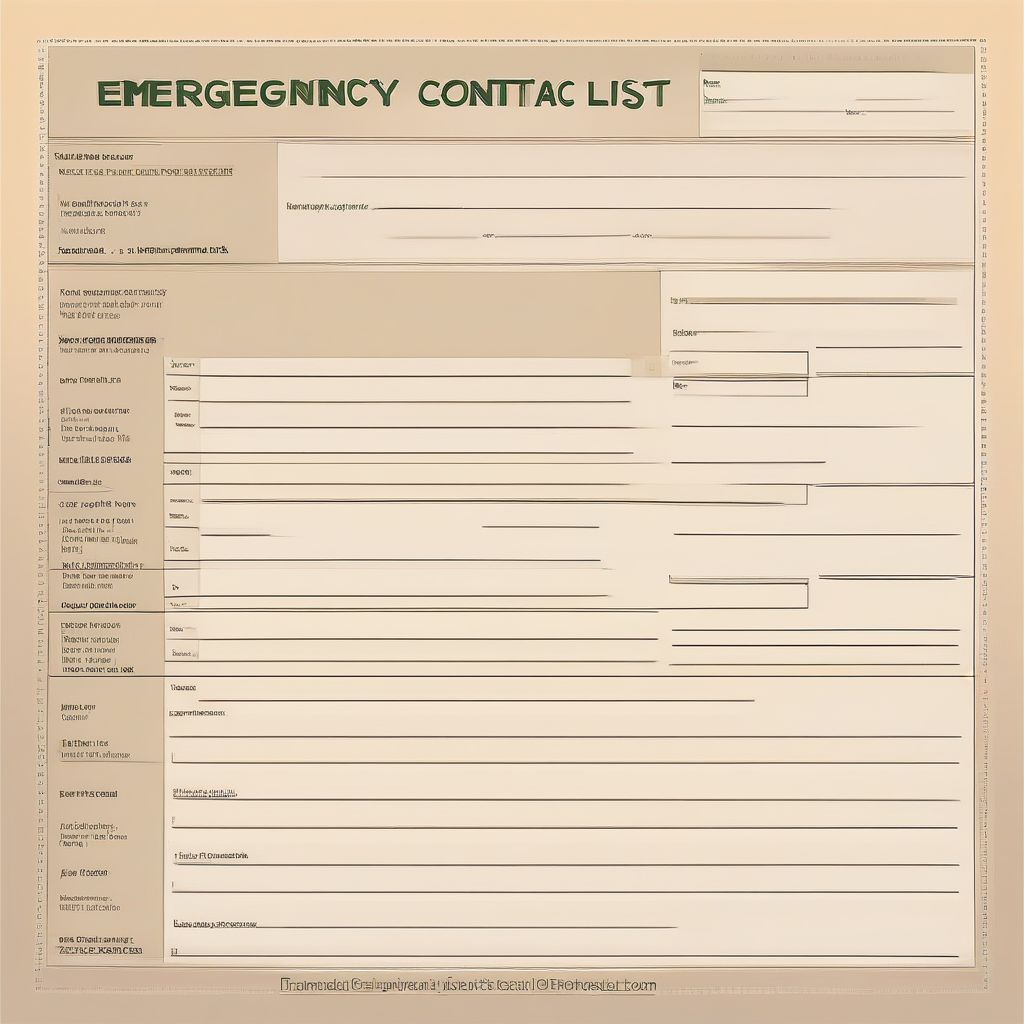Have you ever daydreamed about jetting off to a remote island or exploring a bustling foreign city? The thrill of adventure is enticing, but what happens when the unexpected occurs? Before you trade your worries for wanderlust, it’s crucial to establish a solid plan for handling travel emergencies. That’s where having a reliable list of travel emergency contacts becomes your most valuable travel companion.
Why You Need Travel Emergency Contacts
Imagine this: You’re trekking through a foreign country when you realize you’ve lost your passport. Or perhaps you experience a sudden illness and need medical attention. In those moments, having quick access to the right contact information can be a lifesaver.
Travel emergency contacts serve as your lifeline when things go wrong. They provide:
- Peace of mind: Knowing you have a safety net allows you to relax and enjoy your trip.
- Swift action: Time is of the essence during emergencies. Having contacts readily available speeds up the process of getting help.
- Support system: Emergencies can be stressful. Your emergency contacts can offer emotional support and guidance.
 Emergency Contact List
Emergency Contact List
Building Your Essential Travel Emergency Contact List
Creating a comprehensive emergency contact list is the cornerstone of any safe travel plan. But who should be on it and what information do you need? Let’s break it down:
1. Personal Emergency Contacts
- Immediate Family: Include the names, phone numbers (with international dialing codes), and email addresses of your closest family members. It’s wise to designate at least two primary contacts in case one is unreachable.
- Close Friends: Add the contact details of a trusted friend or two who can act as backup contacts.
- Home Security: If you have a home security system, note down their contact information and your account details.
2. Essential Travel Contacts
- Airlines and Accommodation: Keep your flight and hotel details easily accessible. If your phone dies, you’ll still have this vital information.
- Travel Insurance Provider: Note down their 24/7 emergency hotline number and your policy number.
- Travel Agent (if applicable): If you booked through an agent, keep their details handy for potential rebooking assistance.
3. Local Emergency Services
- Local Police: Research and save the local emergency number for the police in each destination you visit.
- Local Ambulance/Medical Services: Similarly, note down the number for emergency medical services in the local language.
- Nearest Embassy or Consulate: This is especially crucial for international travel.
4. Additional Contacts
- Medical Professionals: If you have any pre-existing medical conditions, list your primary doctor’s contact information.
- Bank and Credit Card Companies: Save their international customer service numbers in case of lost or stolen cards.
Tips for Organizing and Accessing Your Travel Emergency Contacts
Now that you’ve compiled your list, let’s ensure it’s easily accessible in a pinch:
- Digital Copies: Store your list digitally in multiple locations. Email it to yourself, save it in a secure cloud storage service, and keep a copy on your phone’s notes app.
- Physical Copies: Print out a few hard copies and store them separately from your passport in your carry-on bag, wallet, and hotel safe.
- Share with Travel Companions: Provide a copy to someone you’re traveling with and inform a family member or friend back home about your itinerary and emergency contacts.
Beyond the Basics: Additional Considerations for Travel Safety
- Travel Insurance: Investing in comprehensive travel insurance is non-negotiable. It can cover medical emergencies, lost luggage, trip cancellations, and much more.
- Register with Your Embassy: For international travel, registering your trip with your home country’s embassy or consulate allows them to reach you in case of emergencies or natural disasters.
- Stay Informed: Before you go, research common travel scams, local laws and customs, and any potential safety concerns in your destination.
Conclusion: Travel Prepared, Travel Confidently
Planning for the unexpected may not be the most glamorous part of travel, but it’s undeniably the most crucial. By assembling a comprehensive list of travel emergency contacts and following these safety tips, you can embark on your adventures with the confidence that you’re prepared for whatever comes your way.
Remember, a little preparation goes a long way in ensuring a smooth and worry-free travel experience. Now, go explore the world and make unforgettable memories! Do you have any travel safety tips or must-have emergency contacts that you swear by? Share them in the comments below! And if you found this guide helpful, be sure to share it with your fellow travel enthusiasts.
[amazon bestseller=”travel safety”]
